A long time ago, in a kingdom far, far away...
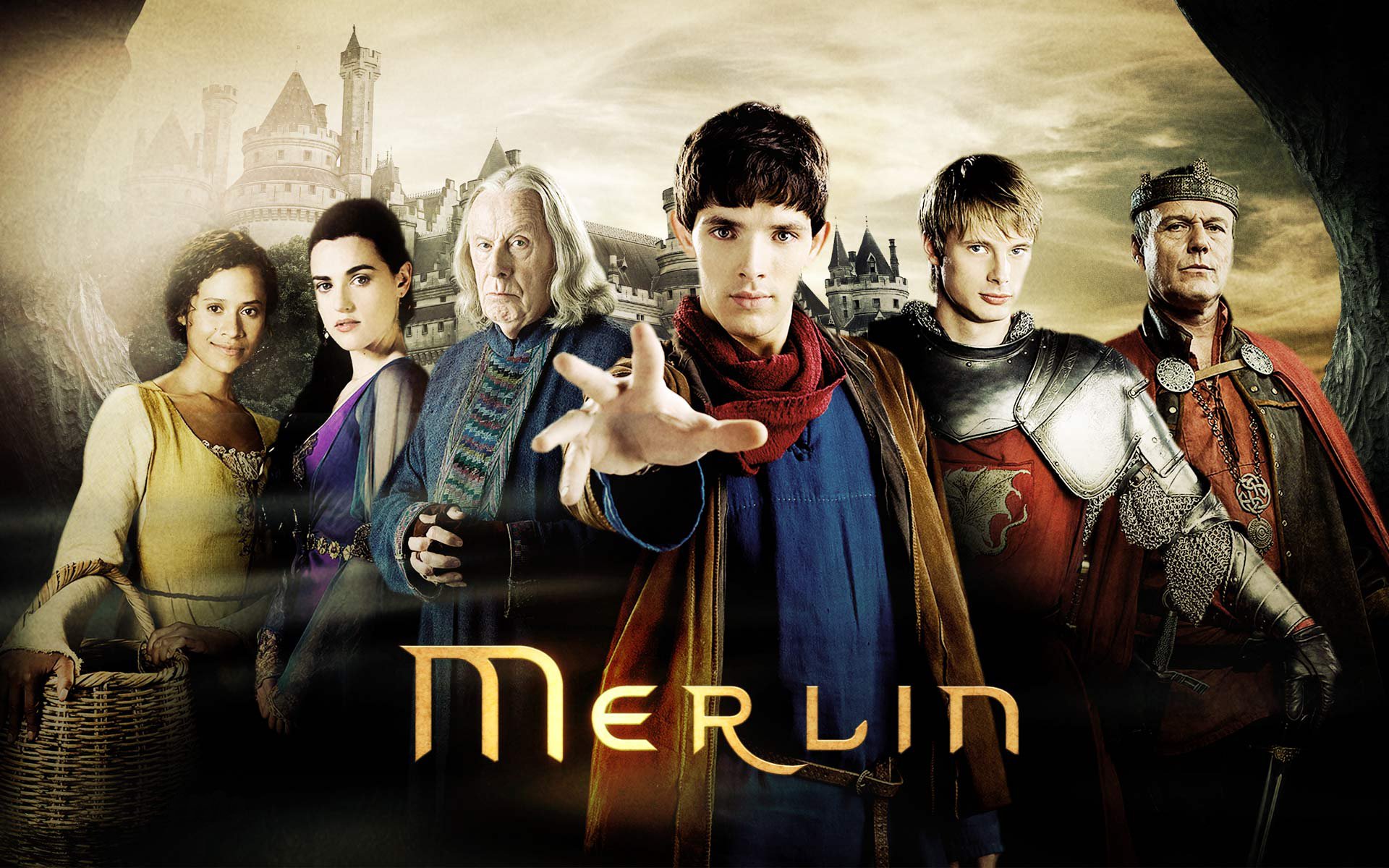
Today's review is about Merlin, the world's most recent Arthurian adaptation that brings the legends of Camelot to a new generation.
Originally aired on the BBC (and on NBC in North America), this series advertises itself as a family-friendly retelling of the story of King Arthur and friends, with an emphasis on the wizard so great that he became a household name.

Well, no. Not this Merlin. Suffice it to say that this is not your father's Arthurian legend, nor your grandfather's. Merlin (or The Adventures of Merlin, as the show's own title sequence calls it, even though that is not the series's legal name) adapts and modernizes ancient myth to better suit today's dramatically inclined audiences. As such, it discards a lot of the source material. A lot of it.
Luckily for the people at the BBC, there aren't a great deal of Arthurian fanboys running around anymore. But just in case you are one of the few, you should be aware of the following changes to the mythic canon.
Departures from the Source Material
Including, but not limited to:
- Merlin and Arthur are now the same age.
- Arthur has no idea that Merlin is a wizard.
- Arthur is no longer a bastard, in the technical sense. In this rendition, his parents are married at the time of his birth. But he is a bastard in the vulgar sense.
- Arthur is not raised by strangers. In fact, his father, Uther, is still alive while Arthur is serving as a knight of Camelot.
- Guinevere and Lancelot are now commoners, and Lancelot is not French.
- Morgana is not Ygraine's daughter.
- Morgause is neither Arthur's sister nor his lover.
- Mordred is not Arthur's son.
- Gwaine is not Morgause's son.
- Nobody is Lancelot's son (Galahad didn't make the cut, apparently).
If you can live with these changes, then you are in for a treat, because Merlin is one of the best written and developed series to ever come out of the United Kingdom, and it has a fanatic fanbase on both sides of the Atlantic Ocean.
A Few Other Gripes
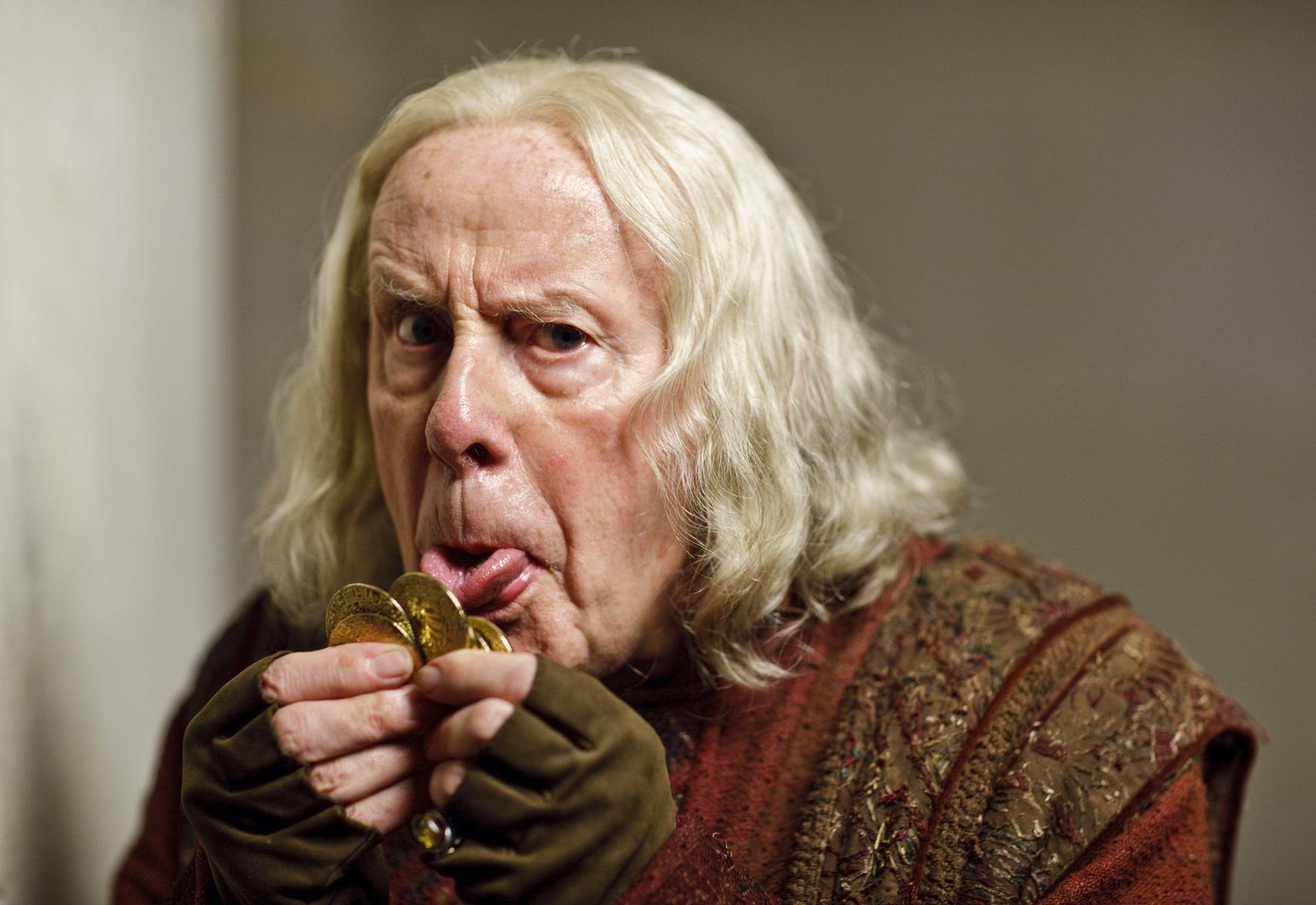
I'm not trying to rag on the series. I'm really not. But before I begin to gush about how good it is, I need to acknowledge the parts that didn't quite work.
There are a few things that really stood out.
Plot Holes Far and Wide: So many times, I asked myself "Why doesn't Merlin use the same spell he used two episodes ago to solve his current problem?" After a while, it got annoying.
Convenient Comas: One of the central conflicts of the series revolves around the idea that Merlin needs to conceal the fact that he is a wizard. So, strangely enough, whenever he is put in a tight situation that requires him to use his powers, something will happen to the other characters that will knock them all unconscious (a cave in, or an unexpected blow to the head, or a blast from enemy wizards that knocks them out cold). It happens enough throughout the series that it starts to stand out in a bad way.
A Confounding Lack of Archers: Many of the monsters that Arthur and friends fight are flying creatures. So how do the knights of Camelot fight such flying abominations? With swords and shields, like a bunch of idiots. Too often, I found myself asking "Where are Camelot's archers? Surely they could dispose of the flying beasties with little trouble." Yet the show seems to have forgotten they exist. Oh, there are plenty of crossbows, but they are almost universally wielded by bad guys. The heroes apparently have little need for such things. Only once in the series did I see a true bow and arrow, and they were only used to light a funerary boat.
Morality is Relative: For a "family friendly" series, there sure is a lot of killing going on. And the person with the highest body count is undeniably Merlin himself, who is always secretly murdering the various villains that appear from episode to episode. And yet, whenever he is put in a situation where saving Camelot means killing a main character (such as Uther or Morgana), Merlin balks, claiming that it is wrong to use magic as a means of killing people.
Repetitive, Repetitive, Repetitive Storylines: Five or six of the episodes were poorly concealed clones of previous entries in the series. "Oh no, Morgana is using an undead army to conquer Camelot for the third time!" is something I wish I didn't have occasion to say.
A Missed Opportunity: This show didn't make a single Monty Python and the Holy Grail reference. And they certainly could have gotten away with one or two. I kept waiting for the episode where Arthur and Merlin find the Castle Anthrax, or casually mention anything about swallows. My hopes were dashed.
Holy Retcons, Batman: The showrunners certainly weren't afraid to change their minds about how the rules of their universe work. In the first episodes, Merlin is special because he is the only person who has ever been born with magical powers, whereas everyone else has to learn them through years of study. By the end of the series, that idea is turned on its head, and suddenly magic can only be inherited at birth and is not a choice.
There is one last thing which I must mention, but not before I cordon off a space for spoilers.
Heere Beginneth Yon Spoilers
I was very unhappy with the last episode of the series.
It is never a good idea for the author to break a promise to the reader (or, in this case, for the showrunners to break a promise to the audience). Yet in Merlin, we are treated to an enormous oopsie-daisy at the tail end of the series.
Consider this: in the first episode, the dragon reveals that Merlin's destiny is to help Arthur unite the land of Albion under a single king, and to restore the free and open practice of magic. And the entire series is about Merlin coming to accept this destiny and finding himself fulfilling it.
And yet, when Arthur dies, the kingdoms of Albion are not united and the use of magic is just as prohibited as it ever was.
What. A. Load. Of. Dragon. Piss.
I also would have appreciated at least one full season where Arthur was aware of Merlin's magical gifts, but that's more a stylistic preference.
Furthermore, Arthur's own death comes as a bit of a letdown. In the second-to-last episode, Merlin's ghost daddy tells him that the one thing he must do is always keep fighting and never give in. Yet in the very next episode, the dragon essentially tells Merlin, "It's too late. Arthur is already dead." And Merlin just accepts that he can't do anything to save his friend's life.
And these gripes I have with the last episode serve to demonstrate the problem of retooling the Arthurian story for younger audiences. Yes, Arthur also dies in the original legends, but he does so as an older man, who has lived a full life and whose death is more of a capstone to all his wondrous adventures. But in this series, I cannot help but feel that Arthur died long before his prophesied "destiny" ever came to pass. Frankly, I feel gypped.
But that's the end of that.
Heere Endeth Yon Spoilers
Now that we have the negative out of the way, let's focus on what was great about Merlin.
The Writing
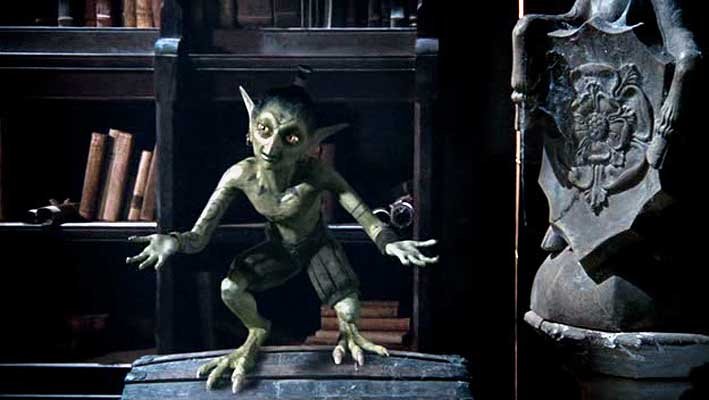
The writing in fantasy TV programs has come a long way since the 80s and 90s. Shows like Beastmaster and Hercules: the Legendary Journeys and even Star Trek: the Next Generation were, at times, painful to watch as stiff lines were delivered from uncomfortable actors.
Merlin, despite some overarching plot disagreements, manages to sidestep that problem completely. Everyone in the show is a complete character, and they almost always keep in character. They say things that a normal human in their situation might say. And when the writers do delve into a little bit of silliness, they keep it subtle.
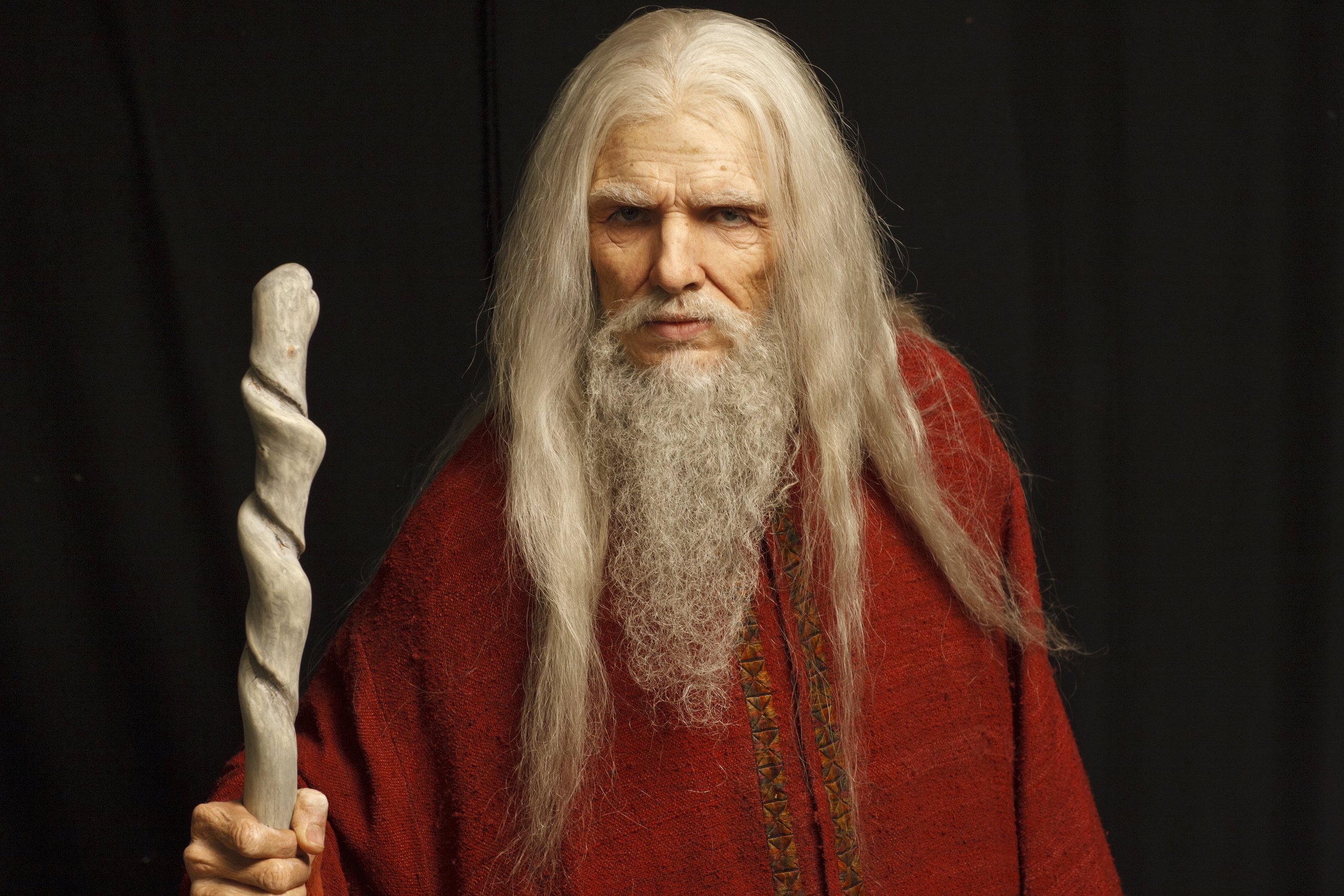
The Special Effects

While not nearly in the same league as your average Hollywood blockbuster, Merlin provides us with a dedication to special effects previously unseen on television. That such effects could be produced on a TV show's moderately modest budget is testament to how far computer animation technology has come. Yet the show still divorces itself from using them exclusively. A large number of practical effects are employed in every episode, and the showrunners always manage to pick the right tool for any given job.
The Setpieces and Costumes

A startling amount of the show is filmed on location. And since that location is England, the audience is treated to scenes filmed in real castles, real forests, and real ruins. It is a sight to behold.
Likewise, the costumes are elegantly handcrafted, if historically inaccurate (but Arthurian legends have never been devout in the church of historical accuracy). It's dazzling what they were able to pull off.
The Acting
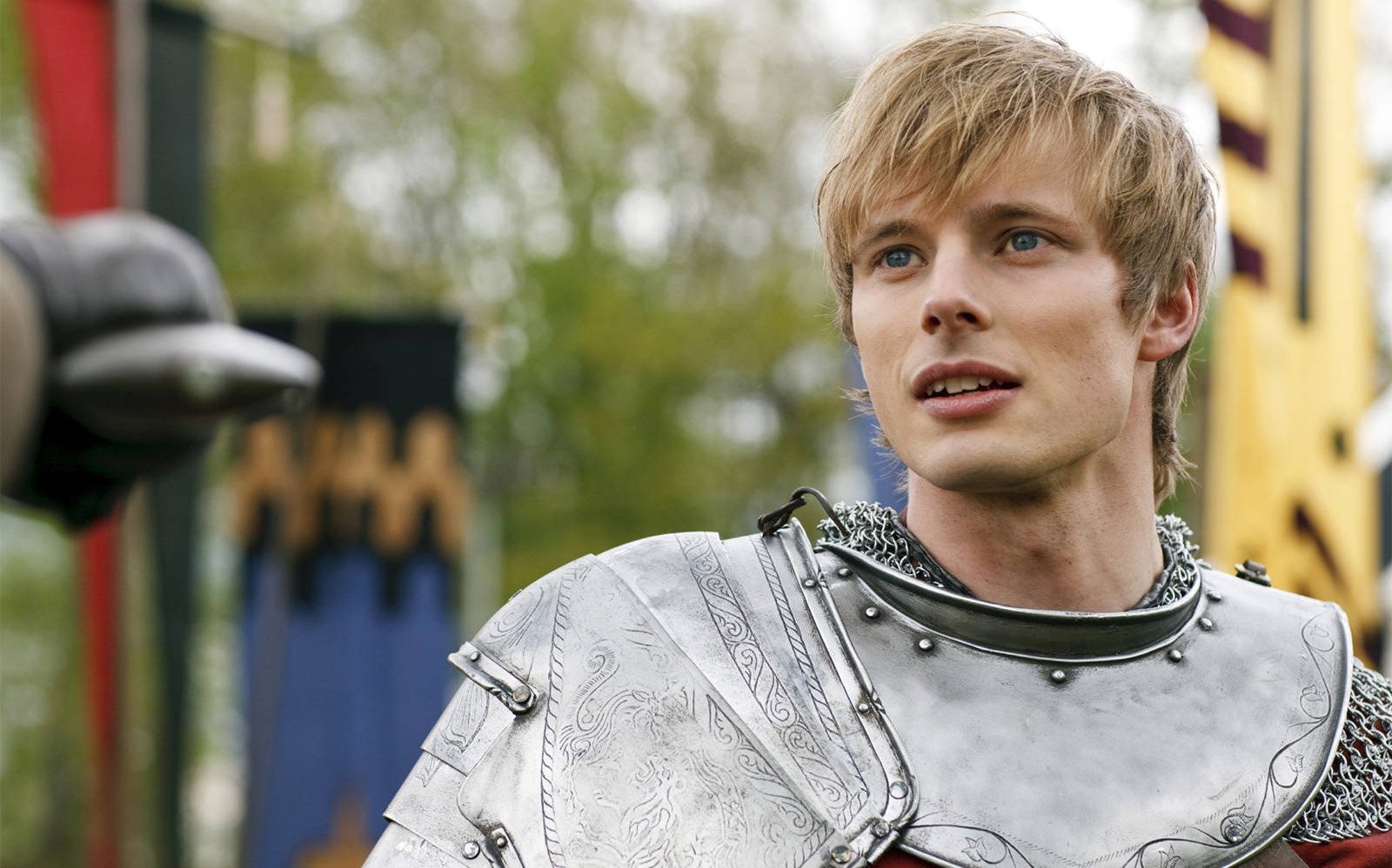
Every actor filled the measure of their role, and they did so without coming off as pretentious, or high strung, or lazy. Granted, England is the epicenter of method acting. Yet I was surprised at the self control and balanced nuance which every actor brought to their part, whether big or small.
Not to mention that this show gives us the hottest depiction of Morgan le Fay ever put on screen.

With all that out of the way, let's talk about the most important part.
The Story

The series begins with young Merlin's arrival in Camelot, where he instantly witnesses the execution of a man for practicing sorcery. Moments later, Merlin reveals to his uncle, Gaius, that he is also a sorcerer, and the two of them quickly agree not to mention it to anyone.
Meanwhile, prince Arthur is in need of a new manservant, as all his old ones don't last very long. When a turn of events causes Merlin to save Arthur's life, King Uther decides to reward the lad by making him Arthur's new servant.
All the following episodes deal with some kind of magical danger threatening Arthur and/or Camelot. King Uther has forbidden all use of magic on pain of death, and that makes a lot of wizards, witches, and magical creatures angry. Every week, a new enemy shows up, and Arthur is powerless to stop it because only magic can beat magic (a glaring oversight on King Uther's part, I should think), so Merlin is forced to covertly use his powers to save the day, again, and again, and again.
But that's not all, because Uther is also the one responsible for killing all the dragons in the world, except for one which he keeps locked up in the caverns under Camelot "to serve as an example" (though I found myself asking, "An example to whom? All the other dragons are dead."). And this dragon has a lot to say to the naive young Merlin, because apparently the dragon has read all the same Arthurian source materials that I have, so he knows exactly how it is all going to end.
As the series builds, the dangers get ever more fierce. There are a lot of battles, a lot of fantasy adventures, and even a little bit of fantasy horror themes running throughout the series. There is a stunning amount of variety here.
My Judgment
Despite the show's logical faults, it is a fantastic experience that is full of the love and hard work of everyone who helped to build it. It has a lot in common with the best fantasy films of the silver screen, and is easy for anyone to get into. I would recommend it to all viewers who love adventure and have a Netflix account.
You may want to skip the last episode. Other than that, you don't want to miss a minute of Merlin.
All five seasons of the show are now on Netflix. And, while each episode can be as long as 50 minutes, they are all easy to digest. Do yourself a favor and see what all the fuss is about.
Citations
- All live action images in this post come from Merlin and are property of the BBC.
- Image from Disney's The Sword in the Stone is property of the Walt Disney corporation.
Previous entries in the Netflixing series:
TV Shows
Movies
